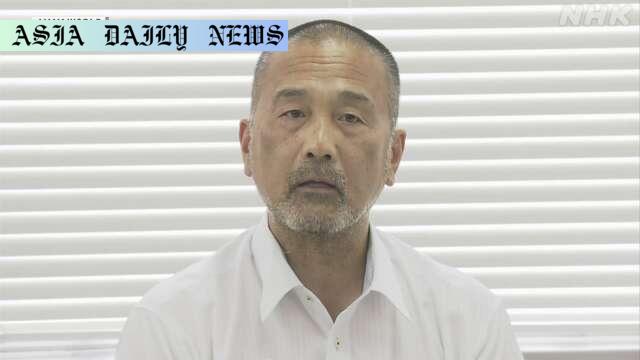Exoneration: Maekawa Shoshi acquitted after 40 years as wrongful conviction reveals prosecutorial misconduct.
Maekawa Shoshi acquitted after nearly 40 years of wrongful conviction.
Judges blame investigative misconduct and leading questions for conviction.
Prosecutor apologizes but no plans to formally acknowledge fault.
Case exposes flaws in Japan’s retrial system and the need for reform.

The Long Fight for Justice
The exoneration of Maekawa Shoshi signifies a monumental moment in the judicial history of Japan. At 60 years old, Maekawa can finally breathe a sigh of relief after spending a large portion of his life under the shadow of injustice. Convicted in 1986 for the murder of a teenage girl, his name has now been cleared nearly 40 years later during a retrial. The shocking revelation of prosecutorial misconduct, inadequate investigations, and coerced witness testimony highlights one of the grave failures in Japan’s judicial system. Maekawa fought persistently to prove his innocence, and his triumph sheds light on the pressing need for reform in how retrials are conducted in the country.
Judicial Misconduct and Its Consequences
The Nagoya High Public Prosecutors Office has come under fire for its role in the wrongful conviction of Maekawa. Reports from the retrial pointed out that investigators employed leading questions, and witnesses were manipulated to provide evidence aligning with the prosecution’s narrative. Judges from the Kanazawa branch of the Nagoya High Court declared the evidence used as unreliable, stating that investigators were evidently desperate to build their case. Such actions not only destroyed Maekawa’s life but also cast a shadow on the overall credibility of Japan’s judicial system. Prosecutor Hama Katsuhiko acknowledged the damage but stopped short of offering a formal apology, further angering critics. The failure to fully investigate new evidence inconsistent with prior claims adds to the distrust in how such cases are handled.
The Witness’s Regret
A key witness in the original trial has also stepped forward with a confession that further underscores the structural flaws within the investigation. The witness revealed that his testimony was the result of undue pressure and manipulation by investigators. By asking leading questions, the police pushed the witness to provide an account that ultimately linked Maekawa to the crime. This false testimony, born out of coercion, proved to be the cornerstone of Maekawa’s conviction. This admission not only underscores the failure of the judicial process but also poses important questions about how witnesses are treated during investigations.
The Systemic Flaws in Retrial Practices
Maekawa’s experience highlights a serious defect in the Japanese retrial system. Gaining a retrial in the country is an incredibly arduous process, often requiring years of legal battles. Once granted, the acquitted face long delays before their rulings are finalized. The lack of accountability for those who mismanage investigations is a glaring issue. Prosecutor Hama Katsuhiko stated that the lessons from this case will be shared but ruled out significant probes to ensure justice for those wrongly convicted. For Maekawa, his fight won’t end here. At his press conference, he reiterated the importance of advocating for changes to the justice system to prevent others from suffering as he did.
Hope for Change and Lessons to Learn
Maekawa’s eventual exoneration serves as both a bittersweet victory and a wake-up call. While his name has finally been cleared, he has lost irreversible time and made sacrifices that cannot be compensated for. The Japanese government now faces mounting pressure to adopt reforms, improve investigative measures, implement fairer retrial practices, and ensure accountability from prosecutors and police. While the path ahead remains uncertain, Maekawa’s resilience and determination are paving the way for a much-needed conversation about justice, accountability, and human rights. The revelations from his case are a stark reminder that the cost of systemic failure in the judiciary is often borne by the innocent.



Commentary
Reflecting on Maekawa Shoshi’s Exoneration
The exoneration of Maekawa Shoshi after nearly 40 years sends a powerful message about the resilience of the human spirit but also leaves us grappling with the inefficiencies of the judicial system in Japan. This case is a harrowing example of how one person’s life can be devastated by mere procedural lapses and investigative misconduct. From coerced testimony to flawed evidence-gathering practices, Maekawa’s story sheds light on the fundamental need for judicial reform.
The Need for Accountability
One of the most glaring omissions in this narrative is the refusal of the prosecutors to formally apologize for an action that cost an innocent man his youth, his reputation, and his peace of mind. By choosing not to hold themselves accountable, authorities miss a vital opportunity to restore public trust in the justice system. While Prosecutor Hama Katsuhiko mentioned that this case should become a learning lesson for investigators, the lack of any formal reparations for Maekawa makes such comments seem hollow.
The Human Cost and Call for Reform
Maekawa’s tireless efforts to bring his case to light exemplify extraordinary courage and determination. Yet, one cannot disregard the immense price he paid — years that could have been spent building a life, forming memories, and pursuing happiness were replaced by unjust imprisonment and public condemnation. His call to reform the retrial system is both timely and crucial. Japan must act swiftly to streamline judicial processes, ensure the reliability of evidence, and make reparations for those wrongfully convicted. Perhaps, only then will justice truly be served.
Final Thoughts
As we reflect on this case, it becomes clear that justice is not just about punishment but also about fairness, accountability, and compassion. Maekawa’s story serves as a testament to the enduring flaws in legal systems worldwide and the cost of inaction when those flaws are identified. Let us hope that his experience galvanizes real change, not just in Japan but in judicial systems across the globe, to prevent such tragedies in the future.